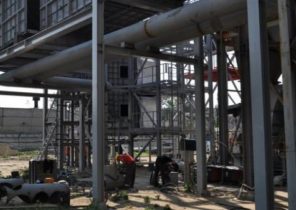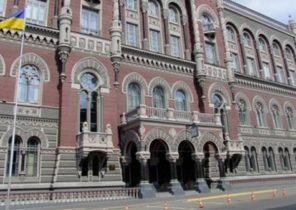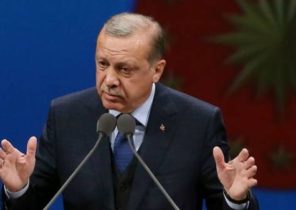After a price war of recent months oil has slightly risen in price. But Riyadh looking for something more than compromise, and he found the weak place in Moscow.
Igor Sechin, the head of concern “Rosneft” and the man from the entourage of President Vladimir Putin, has been specific reasons to reject in early March, the Saudi proposal. His “no” crossed out the agreement between OPEC, Russia and other oil-producing countries, and Riyadh in response has launched its drilling rigs at full capacity and literally flooded the market with oil.
The result is well known: the price of “black gold” has fallen, held an emergency meeting of OPEC+, which was after agreement was reached on the huge reduction in production to pull the price from the “basement”.
From may 1 there are strict limits on production. The Ministry of energy of Saudi Arabia on Monday even announced that from June to voluntarily reduce production by another million barrels per day to 7.5 million. It will fit the 2002 level. Russia Saudi government urged to do the same.
From Igor Sechin waiting for an answer. The head of state-controlled and the second largest in the world (after Saudi Aramco) company “Rosneft” opposed to further limiting production. Field in Western Siberia, which produces half of Russia’s “black gold”, are severely depleted. There is still during Soviet times, the work was very intensive and extractive installation was powerful, but low-tech.
Russian oil companies for many years trying to maintain production at a high level with the help of steam and chemicals. But imported chemicals after the collapse of the ruble has risen strongly. A year ago a scandal broke when stuffed with chemicals crude oil was delivered to the refinery in the German town of Leuna. While serious damages were received by the pipeline in Poland and Belarus.
To make sure poor state of the Russian fields, it is enough to look at the situation in Khanty-Mansiysk, the main oil region of the country where the number of wells increased by two-thirds, but the volume of oil produced has decreased on 15% in the period from 2008 to 2019.
Russia for decades followed a strategy whereby we had to produce 200 thousand wells more oil. Until 2016, the Kremlin has persistently refused to negotiate with OPEC, but always enjoyed a situation where the Saudis with the aim of redressing the balance of supply and demand cut production.
And in the future Moscow, according to Riyadh, repeatedly violated its own promises to reduce production. Aramco tightened its valves, and LUKOIL, Rosneft, Gazprom Neft and other Russian companies continued to promote them.
Payback for obsolete equipment
And that’s what happened in the end: “We will fulfill the agreement 100%, and all companies took responsibility for it,” — said the head of the Russian Ministry of energy Alexander Novak about the agreement OPEC+.
At the moment Russia for the first time since the collapse of the ruble in 1998 reduces oil production. Moscow, like the Saudis, has undertaken from may 1, to begin to implement the most part of agreements on the reduction of 9.7 million barrels (about 10% of daily production).
Thus Novak has drawn the IRE of a friend of Putin, Sechin. After all, Russia’s agreement to reduce production by 18% to 8.5 million barrels a day, according to the famous Moscow partner of consulting company RusEnergy Michael Krutikhin, means not that other, as “a revolution in the Russian oil industry”. After all, if Saudi Arabia is enough to “tighten the tap” on one rig, in Russia “you need to close to 150,” he said.
Even after the end of “coronaries” not everything is going smoothly, it involves Marcel Salikhov from the Moscow Carnegie center: “the Main risk is that after the temporary closure of oil wells will fail again to bring them to maximum power.” According to him, after closing the well, the pressure may drop too much and it threatened “irreparable loss of productive capacity.” In addition, “some of the deposits at current prices is simply unprofitable”, said Salikhov.
It can get worse
Catherine Grushovenko of energy Centre, Moscow school of management SKOLKOVO, in turn, has added that Russia will now have to pay for its oil companies for many years were subject to too high taxes and had no tax incentives for major investments in more modern oil production technology.
The combination of obsolete equipment, forced production cuts and falling prices will lead coupled with the pandemic coronavirus to the fact that Russia in the energy sector will lose from 5 to 13% of GDP, estimated of Grushovenko. While the Russian Central Bank predicts decline in GDP this year by 4-6%.
But the situation could become even worse: in Russia the price of oil is about 13 dollars per barrel (159 liters), and Saudi Aramco — only about three dollars. In addition, the Saudi fields are much younger and are at shallower depth than in Russia. Therefore, according to experts, to vary the production they can reduce costs.
Besides, one of the Saudi wells to produce much more crude oil than the Russian one. So Saudi Arabia will be much easier to survive times of cheap oil.
Putin against the crown Prince
In addition to everything in the Kingdom decisions in the oil sector take only the Minister of energy and the management of the company Aramco, and they actually depend on the powerful crown Prince Mohammed bin Salman. In Putin’s Empire energy Minister Novak is forced not only to focus on the wayward Sechin, is closely associated with the Kremlin’s master, but also to control Gazprom and other “billionaires from oil” — the management of “LUKOIL” and “Surgutneftegaz”.
To caused by a coronavirus crisis expert Krutikhin expected that peak production will be reached in 2021 (570 million tons a year, and it would be a historic high), and then until 2035 would be reduced by 44%.
And then the country, in his opinion, would lose its current role as an oil exporter and would be able only to cover their own needs in the “black gold”. Do not accelerate this decline further, if after the end of the pandemic will not be able to restart the legacy field, it is hard to say.
However, Russia has new large deposits, but they are in the far North and lie very deep. There the country needs the most modern equipment, but to her she can’t due to Western sanctions. Access to Western loans to Russian oil companies also there.
The Problems Of Saudi Arabia
But the Saudis, the situation in the oil industry is developing dramatically. Saudi Aramco said this week about falling profits in the first quarter on a quarter, that is, to $ 16.7 billion — and this even before the pandemic coronavirus has reached its climax.
Finance Minister Mohammed al-Jadaan was forced to make drastic budget cuts in the amount of 26 billion dollars to reduce foreign currency reserves of around 500 billion dollars. The American Bank Goldman Sachs have predicted such steps only in 2023, if not we will take active measures to prevent such developments. To avoid a repeat of the collapse in oil prices, the management of Saudi Aramco has announced further reductions in production by a million barrels a day.
In addition, traders report that the largest concern in the world since June will reduce exports to Europe, America, and sales of at least ten Asian consumers. “For the United States and Donald trump will have great political significance” the fact that the Saudis will limit the supply in the Atlantic basin, says Olivier Jacob (Olivier Jakob) from consultancy Petromatrix. “In addition, it will signal to the Russians that the Saudis are not going to destroy the European market”, — the expert added.
“The Kingdom has reasons of fiscal nature, to maintain high prices” — sure Helima Croft (Helima Croft), the commodity market strategist at RBC Capital Markets. According to her, the country is now forced to accept painful austerity measures.
The demand forecast is growing
The Russian leadership also has to contend with severe economic problems in addition to raging in the country coronavirus. “The popularity rating of President Putin fell to the lowest level in two decades,” notes Croft. So the recent slight rise in oil prices gives, according to her, at least a temporary respite for both countries.
But in Riyadh insist and Russia further reduced production. Yet Sechin again answers “no.” However, Haile Michael (Michael Hiley) of company LPS Futures doubt that the Saudis cut production voluntarily. The willingness of Saudi Aramco to further restrict production by a million barrels a day, according to him, “means that the group no buyers for that million, so that the apparent bullish trend is actually bearish”.
However, the International energy Agency (IEA) has slightly adjusted its extremely pessimistic prediction of demand for oil. Now experts expect the decline in demand in the second quarter to 20% (previously this figure, in their opinion, was to be 23-25%). “The situation remains bleak, — stated the head of the IEA, Fatih Birol (Fatih Birol). — However, the worst is probably already behind.”
Sure and investors: from the beginning of the month the price of us WTI increased by almost 50%. North sea Brent crude over that time rose by 17%.







